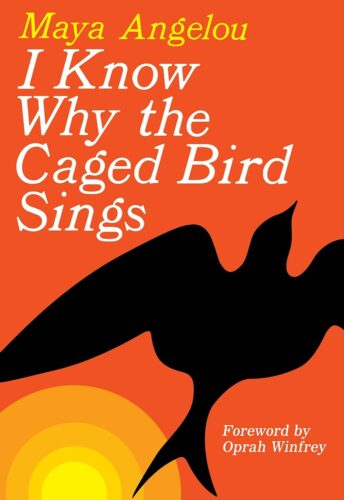 A Moving Memoir
A Moving Memoir
Author: Maya Angelou
I Know Why the Caged Bird Sings is a powerful memoir about survival, about finding beauty and a voice even in the most desperate circumstances. It’s a story about self-definition, one that starts with five-year-old Maya watching her grandmother, a respected, educated Black woman who owned a shop, being mistreated by jealous white people. From the opening lines, then, we see that Maya’s growing up will be interspersed by moments of connection and cataclysmic disruption, unfairness both inside and outside of the family. Maya doesn’t belong anywhere: not with the white community and not with the Black community.
Maya Angelou has a beautiful voice, one that resonates with poetry and frankness. Through this memoir, I felt astonished by the depth of her gift to us: the undeserving audience. She opens with a moment of vulnerability and embarrassment in church, one that reveals her voicelessness and desire for escape. She is sharing everything with us: the beautiful and the ugly. She starts as she means to go on, at times self-deprecating, deeply compassionate, and agonized.
I Know Why the Caged Bird Sings covers some heavy topics. These include the wide-ranging impacts of racism and growing up a displaced Black child in the South during the Jim Crow era. Maya also is unfortunate in that her erstwhile parents are rarely in the picture, and the grandmother who raises her is strict and distant. When she is eight and her beloved brother nine, their world is shaken again. They leave their segregated town with their father, who takes them to their mother before disappearing. Yet again in this new place, Maya experiences a lack of belonging.
The issues here are vast. We only get glimpses of Maya’s parents, of her grandmother. There is enough to speak of depth and suffering, enough to stir empathy, but also more than enough to create judgement. Why has Maya been so abandoned by her parents? Why are they so blatantly irresponsible? Why is she, as a child, forced to protect those who should be loving and caring for her? There are moments of parental love shining through, of course, but it’s a complicated and treacherous landscape, and even as adults we’re not sure what to make of it. Yet this was the reality of one displaced eight-year-old girl with intensely internalized racism and no allies to chaperone her through a disingenuous world.
This is when the narrative gets worse, gets darker. With her usual frankness and complicated lairs of empathy and misplaced responsibility, Maya tells us about the sexual abuse she experiences as an eight-year-old at the hands of her mother’s fiancé. It’s difficult to read. It’s shattering and profound and will have life-long impacts on Maya.
We follow Maya until she is 17 or 18, watching her grow, watching the grit that makes her drive a car for the first time to rescue her drunken father, watching her come from a world of silence to one of words, watching her claim her name, watching her transition from cowering to confident. It’s an amazing story, one that deserves to be told on so many levels, and one that really should be required reading for everyone.
In the end, we have what seems like a new beginning, with this child/woman finding hope in a landscape of shattered dreams and hard truths. I see why this is considered an American classic. There is beauty and lyricism here, but even more importantly there is truth and growth. There is both historical truth and human truth. Highly recommended but be prepared for the difficult topics you will need to tackle.
– Frances Carden
Follow my reviews on Twitter at: https://twitter.com/xombie_mistress
Follow my reviews on Facebook at: https://www.facebook.com/FrancesReviews
- Book Vs Movie: The Shining - April 6, 2020
- Thankful For Great Cozy Mysteries - December 13, 2019
- Cozy Mysteries for a Perfect Fall - October 20, 2019



